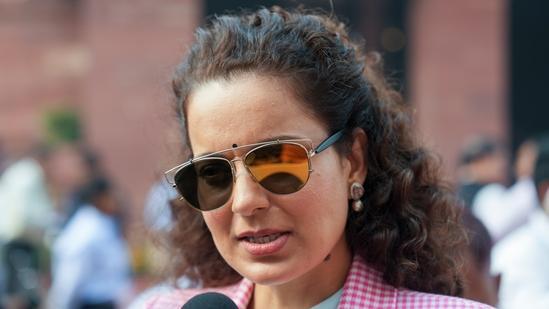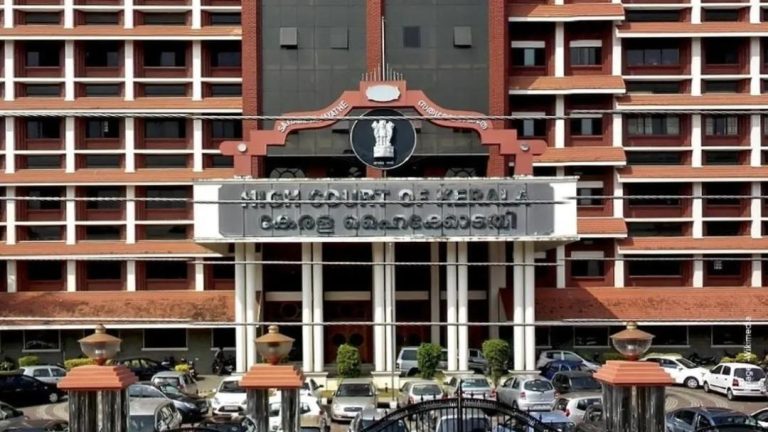
Congress corrupt & forgotten children of Britishers: Ranaut
In a scathing attack on the Congress party, BJP MP from Mandi, Kangana Ranaut, has labelled it as “corrupt and forgotten children of Britishers”. Ranaut’s remarks came during a visit to Sundernagar assembly segment of her constituency, where she made it clear that the country was plagued by corruption before 2014, but Prime Minister Narendra Modi’s bold decisions and impeccable integrity changed that perception.
Ranaut’s comments have sparked controversy, with many taking to social media to express their opinions on the matter. While some have praised Ranaut for her boldness and willingness to speak the truth, others have criticized her for her harsh words and what they perceive as a lack of respect for the opposition.
But what exactly did Ranaut mean by her statement, and is there any truth to her claims? In this blog post, we will delve deeper into the context of Ranaut’s comments and explore the history of corruption in India, as well as the efforts made by the Modi government to combat it.
The History of Corruption in India
Corruption has been a major issue in India for decades. The country’s independence movement was marked by corruption, with many politicians and government officials embezzling funds meant for the welfare of the people. Even after independence, corruption continued to plague the country, with politicians and bureaucrats lining their pockets with public funds.
In the 1980s, the Congress party, which was in power at the time, was rocked by several corruption scandals. The Bofors scandal, which involved the sale of artillery guns to the Indian army, was one of the most high-profile cases. The scandal led to widespread outrage and calls for accountability, but ultimately, it was the Congress party that emerged unscathed.
In the 1990s, the country saw the rise of regional parties, which often used corruption as a means of staying in power. The AIADMK party in Tamil Nadu, led by J. Jayalalithaa, was notorious for its corruption, with allegations of embezzlement and misuse of public funds.
The 2000s saw the rise of the United Progressive Alliance (UPA) government, led by the Congress party. The UPA government was marked by several corruption scandals, including the 2G spectrum scam, the Commonwealth Games scam, and the coal block allocation scam. These scandals led to widespread outrage and calls for accountability, but ultimately, they did little to change the country’s corrupt culture.
The Modi Government’s Efforts to Combat Corruption
The Modi government, which came to power in 2014, has made combating corruption a top priority. In his first budget, Modi announced several measures to combat corruption, including the introduction of the Goods and Services Tax (GST) and the demonetization of high-denomination currency notes.
The GST was introduced to simplify the tax system and reduce corruption. The demonetization of high-denomination currency notes was aimed at reducing the use of cash in transactions and making it easier to track black money.
The Modi government has also launched several initiatives to promote transparency and accountability in government. The MyGov platform, which was launched in 2014, allows citizens to participate in the policymaking process and report corruption.
The Modi government has also launched several schemes to promote transparency and accountability in public procurement. The Public Procurement Bill, which was introduced in 2015, aims to ensure that public procurement is done in a transparent and accountable manner.
Kangana Ranaut’s Comments
Kangana Ranaut’s comments about the Congress party being “corrupt and forgotten children of Britishers” have sparked controversy. While some have praised her for her boldness and willingness to speak the truth, others have criticized her for her harsh words and what they perceive as a lack of respect for the opposition.
Ranaut’s comments are likely a reference to the fact that the Congress party was founded by the British to serve their interests in India. The party was seen as a means of maintaining British control over India, and many of its early leaders were British-backed.
However, Ranaut’s comments have also been criticized for their lack of nuance. The Congress party has a long and complex history, and to label it as “corrupt and forgotten children of Britishers” is to oversimplify its role in Indian politics.
Ultimately, Ranaut’s comments reflect a broader debate about the nature of corruption in India. While the Modi government has made significant progress in combating corruption, there is still much work to be done.
Conclusion
In conclusion, Kangana Ranaut’s comments about the Congress party being “corrupt and forgotten children of Britishers” have sparked controversy. While some have praised her for her boldness and willingness to speak the truth, others have criticized her for her harsh words and what they perceive as a lack of respect for the opposition.
The history of corruption in India is complex and multifaceted, and to label the Congress party as “corrupt and forgotten children of Britishers” is to oversimplify its role in Indian politics. However, Ranaut’s comments do reflect a broader debate about the nature of corruption in India, and the need for greater transparency and accountability in government.
Source
https://theprint.in/india/congress-forgotten-children-of-britishers-kangana-ranaut/2584416/






